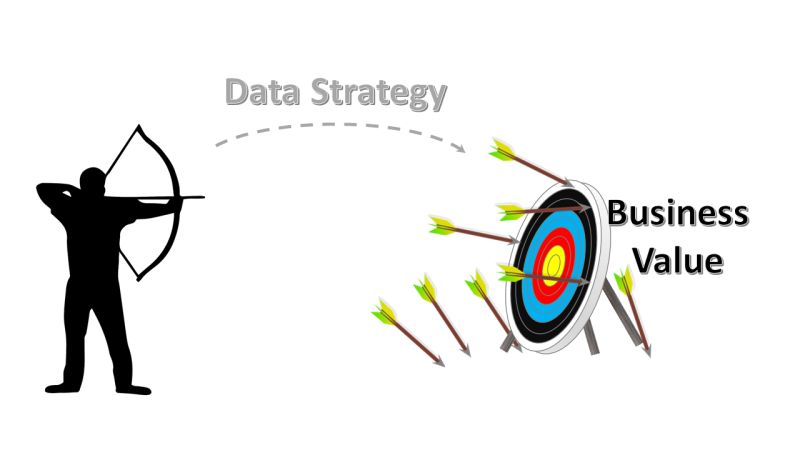Introduction
In the world of data initiatives, achieving clear business value and successful outcomes often feels like navigating a treacherous mountain path. Too many projects miss the mark due to undefined goals, lack of capability, untested hypotheses, or cumbersome processes. This blog post explores how businesses can shift their mindset from large, expensive transformation programs to agile, business-as-usual (BAU) operations that deliver real, ongoing value.

Why Data Initiatives Miss the Target
Most data initiatives falter due to a few common pitfalls:
- Unclear Business Outcomes: The business hasn’t clearly defined a valuable outcome.
- Feasibility Issues: The desired outcome wasn’t possible because of:
- Lack of Capability: Inadequate tools or talent, and excessive friction (political, organizational, technological, or process-related).
- Poor Data Quality: Insufficient or low-quality data.
- Unverified Hypotheses: Key assumptions weren’t tested before committing.
- Big Change Mentality: Treating the project like a massive transformation program rather than small, incremental deliveries (e.g., OODA loop).
- Operational Challenges: Difficulties in operationalizing or productionizing the solution.
A Mindset Shift: Small, Incremental Deliveries
Instead of launching large, costly transformation programs, businesses should focus on building a BAU capacity that operates continuously. Think of this approach as exploring new terrain with small, exploratory teams equipped with good guides, tools, training, and an open mind, ready to adapt as the path changes.
Three Key Pieces for Success
- Data Leaders as Guides, Not Porters
- Role of Data Leaders: Data leaders should help the business define the right outcomes from the outset, being part of the business definition phase. They should not just be delivery units that say yes to everything.
- Guiding the Business: Like mountain guides, data leaders should advise on the best paths to take, warn against potential dangers, and suggest better alternatives. Understanding the business terrain is crucial for this guidance.
- Quick and Cheap Testing and Experimentation
- Early Prototyping: Quickly define and test prototype data products against hypotheses without significant time or cost investments. Organizational friction needs to be minimized—waiting a month for a data ticket is unacceptable.
- Experimentation-Oriented Technology: Use technology that supports fast feedback and part of an agile framework for data. Each analytics delivery should be a data product that allows for composition and re-use, creating a quick-to-deliver, well-defined, and owned ecosystem.
- Efficient Operationalization and Productionization
- Rapid Deployment: Data product prototypes should move into production quickly and be easily changeable. Avoid long ingestion, modeling, and tech cycles—focus on just enough data modeling and good automation.
- Creating Accessible Maps: Make the discovered parts of the business easily traversable by others. All stages should be wrapped in an OODA life-cycle, with continuous and quick iterations as the market changes.
Roles and Responsibilities
To implement these strategies, organizations need strong leadership and the right roles:
- Data Leaders: CDOs, CIOs, and departmental heads who own the budget and data organization. They must put the overall capability in place, supported by executive sponsorship.
- Data Product Specialists: A blend of business data, analytics, and tech skills, focusing on building and prototyping data products with UX and visualization.
- Data Value Specialists: Experts who understand the business from a commercial and data perspective, guiding the business towards valuable outcomes—essentially acting as mountain guides.
Conclusion
For organizations to thrive, they must adopt an agile, incremental approach to data initiatives, focusing on continuous value delivery rather than one-off, large-scale projects. By viewing data leaders as guides, embracing rapid testing and prototyping, and ensuring efficient operationalization, businesses can navigate the complex terrain of data initiatives successfully.
Call to Action
Are you ready to shift your data strategy towards a more agile and value-driven approach? Let’s collaborate to transform your data initiatives and create a continuous, business-as-usual capability that delivers real value. Contact us today to learn more about how we can help you navigate this journey.

